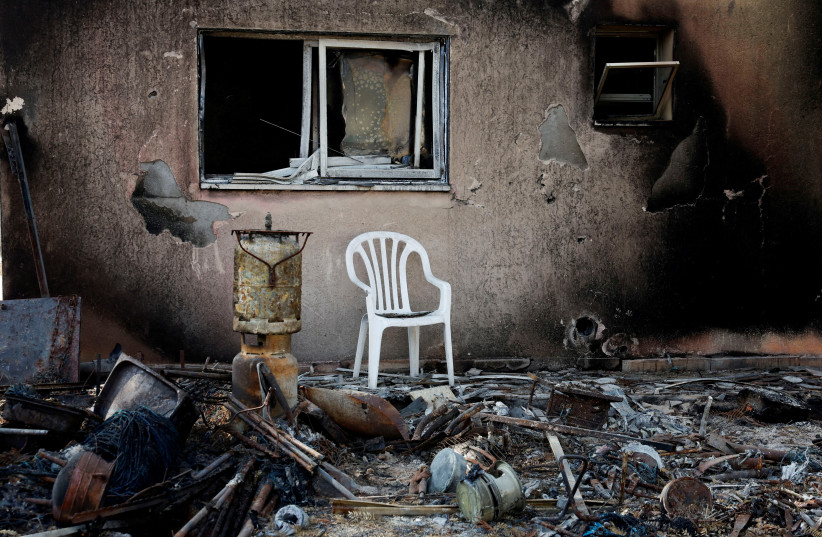Chen Goldstein-Almog, a former Israeli hostage released in late November, recounted this week her harrowing experience with Hamas terrorists while in Gaza captivity.
Goldstein-Almog was taken captive with three of her children to Gaza from Kibbutz Kfar Aza. At the end of the captivity, the lead guard gave her a warning: "Don’t go back to your kibbutz," he said. Don’t return to a place so close to Gaza. Go to Tel Aviv or somewhere farther north, she remembers him saying. "Because we are coming back."
Goldstein-Almog said that she and her children were mostly held together in a room in an apartment in Gaza, with the windows closed except for a bit of fresh air in the morning. Sometimes, the family was moved around to different apartments, tunnels, a mosque, and once to a destroyed supermarket.
Treatment of the family in captivity
Throughout her captivity, Goldstein-Almog says that she and her captors engaged in long, intimate conversations about their families, their lives, and their fears in the current conflict.
One of the gunmen apologized for the killing of her husband and one of her daughters, she said.
“I didn’t respond, I didn’t feel I could express any negative feelings.”

Her conversations with the guards sometimes went on for hours. There were even moments when the guards cried in front of them, worried about their own families. The guards told the family that they were members of Hamas.
The guards taught her son 250 words in Arabic, and gave him a notebook to study to keep him occupied. In the apartment in which they stayed the longest, the lead guard sometimes invited the family to join in cooking in the kitchen, although the guards were always carrying firearms.
The guards would regularly discuss food with the family. Most days they survived off pita and feta cheese. The guards would escort them to the bathroom and allow them to sleep.
Goldstein-Almog says that although they were treated “respectfully” and not physically harmed, over the course of various moves during their captivity, she met other hostages who were treated badly, including two women who said they were sexually abused.
Goldstein-Almog recounted that each transfer was terrifying, and occurred in the middle of the night while everything was dark.
“We were in daily danger,” she said. “It was fear at a level we didn’t know existed.”
